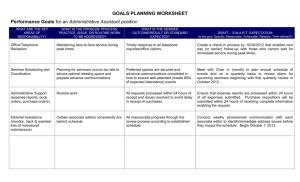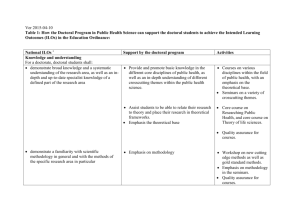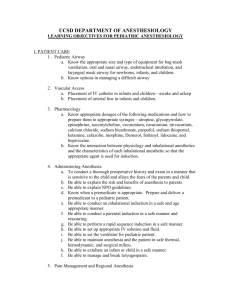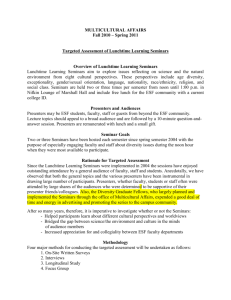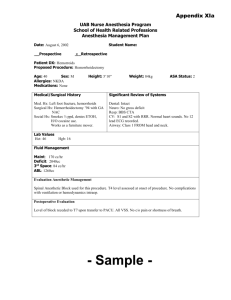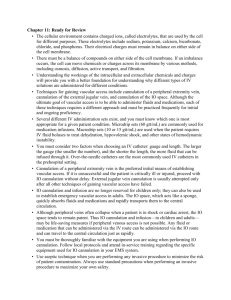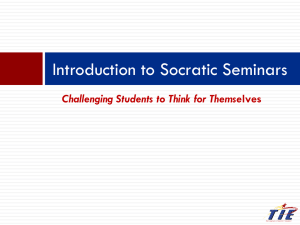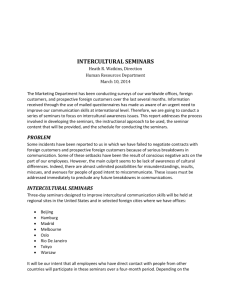Anesthesiology and Intensive Care
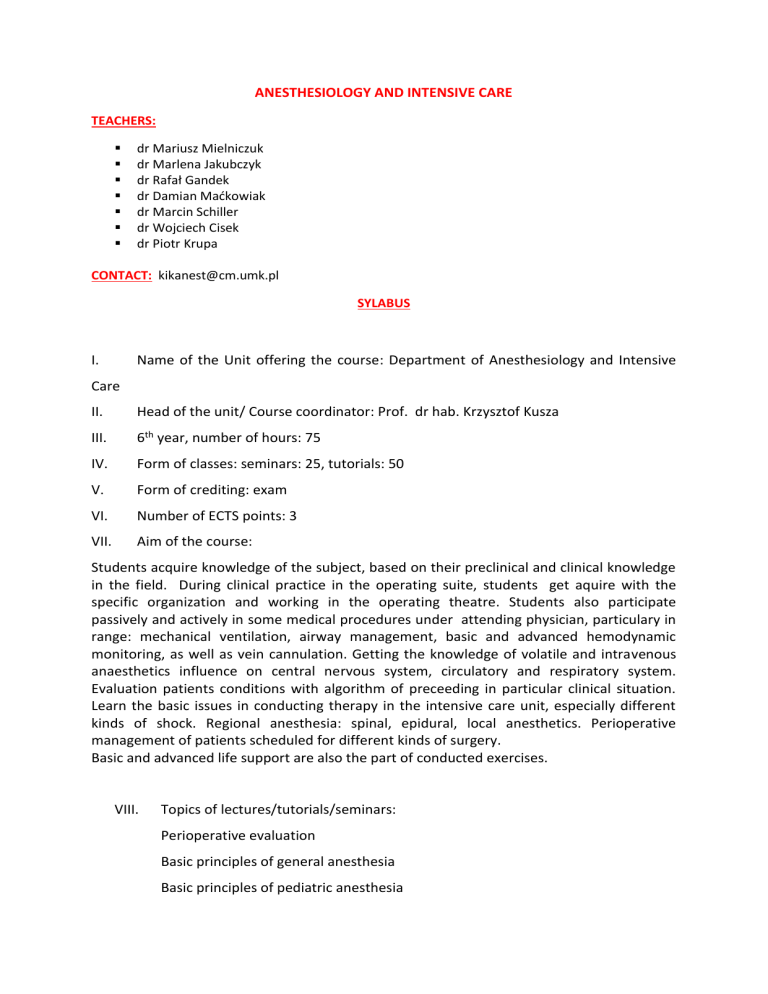
ANESTHESIOLOGY AND INTENSIVE CARE
TEACHERS:
dr Mariusz Mielniczuk
dr Marlena Jakubczyk
dr Rafał Gandek
dr Damian Maćkowiak
dr Marcin Schiller
dr Wojciech Cisek
dr Piotr Krupa
CONTACT: kikanest@cm.umk.pl
SYLABUS
I.
Care
Name of the Unit offering the course: Department of Anesthesiology and Intensive
II.
Head of the unit/ Course coordinator: Prof. dr hab. Krzysztof Kusza
III.
6 th year, number of hours: 75
IV.
Form of classes: seminars: 25, tutorials: 50
V.
Form of crediting: exam
VI.
Number of ECTS points: 3
VII.
Aim of the course:
Students acquire knowledge of the subject, based on their preclinical and clinical knowledge in the field. During clinical practice in the operating suite, students get aquire with the specific organization and working in the operating theatre. Students also participate passively and actively in some medical procedures under attending physician, particulary in range: mechanical ventilation, airway management, basic and advanced hemodynamic monitoring, as well as vein cannulation. Getting the knowledge of volatile and intravenous anaesthetics influence on central nervous system, circulatory and respiratory system.
Evaluation patients conditions with algorithm of preceeding in particular clinical situation.
Learn the basic issues in conducting therapy in the intensive care unit, especially different kinds of shock. Regional anesthesia: spinal, epidural, local anesthetics. Perioperative management of patients scheduled for different kinds of surgery.
Basic and advanced life support are also the part of conducted exercises.
VIII.
Topics of lectures/tutorials/seminars:
Perioperative evaluation
Basic principles of general anesthesia
Basic principles of pediatric anesthesia
Basic principles of advanced hemodynamic monitoring in ICU
Pediatric advanced life support
Basic principles of pediatric ICU
Regional anesthesia
Septic shock
Basic principles of cardioanesthesia
Adult advanced life support
X. Self-study topics: Anatomy of the spinal canal. Physiology of CNS, circulatory and respiratory system. Pharmacology of drugs used during resuscitation and the way they are administered. Pharmacology and mechanism of action for general and local anaesthetics.
XI. Booklist:
Basic: Carl L. Gwinnutt Clinical Anaesthesia, 3 rd ed., 2008, Wiley-Blackwell
Additional: Keith Allmann, Iain Wilson (ed.). Oxford handbook of anaesthesia, 3 rd ed.,
Oxfords Medical Books, 2011.
XII. Detailed list of required practical skills and confirmation of completing
Attending the practical part during the clinical course, students will get acquired with anesthetic equipment: ventilators, defibrylators, pumps, basic and advanced equipment for airway management. Also under assistant supervisor, students are also able to take patients ventilation, using a face mask and peripheral vein cannulation.
Detailed list of required skills
Sellics Maneuveur
Mask-bag ventilation date
Getting acquired with anesthetic equipment
Vein cannulation signature
RULES AND REGULATIONS
Safety rules and regulations:
All students are obliged to know the safety rules and regulations.
All students are acquainted with the rules during their first seminar.
All students must sign a statement, that they are aware of all safety rules, regulation and procedures in case of fire and other dangers.
Requires practical skills: under assistant supervisor, students are also able to take patients ventilation, using a face mask and peripheral vein cannulation.
Unauthorized use of any anesthetic or surgical/ medical equipments is strictly prohibited.
Any confidential information acquires during the course of study must not be divulged to anyone.
Anauthorized access to patients case files is prohibited.
General rules:
The students are required to participate to classes dressed suitably (scrubs or lab coats and skirt or trousers), change footwear.
All clinical lectures will take place in the operating room under normal daily-activities. Please behave appropriately.
The seminars will take place in the auditorium (III floor).
The hands-on activities will take place in the OR>
The clinical lectures last from 8.00-11.30. The seminars last from 12.00-13.30.
Criteria of the course completion: participation in all seminars, mastering the knowledge required for seminars, mastering the knowledge included in indicated literature.
Criteria of justifying the absence: during clinical course: there is a possibility to join one duty in a case of missed one clinical day in OR; seminars: there is possibility to comprehend the material discussed during missed seminars within the last week of academic term.
The final exam: test (50 questions, each consisted of 4 answers). 60% is the limit of positive mark. In case of failed test, second attempt will take place within the next 8 weeks.

